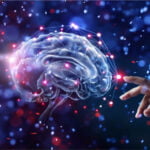
The Power of Rest: Understanding How Quality Sleep Boosts Brain Function
December 6, 2023
The Wonders of Brain Function: Understanding the Marvels Within
December 6, 2023BRAIN FOG 101: UNRAVELING THE MENTAL HAZE
Have you ever experienced moments where your mind feels cloudy, making it challenging to focus or think clearly? This foggy sensation, often referred to as brain fog, manifests as confusion, forgetfulness, and difficulties in concentration. It’s akin to a mental haze that can impact various cognitive functions, affecting daily tasks and overall productivity.
CAUSES OF BRAIN FOG: UNLOCKING THE CLOUDED MIND
Brain fog isn’t a singular condition but rather a symptom that can arise due to various factors:
- Lack of Quality Sleep: Inadequate sleep or disrupted sleep patterns can contribute significantly to brain fog.
- Stress and Anxiety: Chronic stress or persistent anxiety can cloud mental clarity and impact cognitive function.
- Diet and Nutrition: Poor dietary choices or deficiencies in essential nutrients can affect brain health and contribute to brain fog.
- Medication Side Effects: Some medications may have cognitive side effects, causing mental fogginess.
- Health Conditions: Conditions like chronic fatigue syndrome, fibromyalgia, thyroid disorders, or autoimmune diseases can be associated with brain fog.
SCIENTIFIC INSIGHTS: UNDERSTANDING BRAIN FOG’S PREVALENCE AND NATURE
Research suggests that brain fog is a common experience for many individuals. On average, studies indicate that people may experience brain fog episodes intermittently rather than in a constant state. However, exact statistics on its prevalence or how many are diagnosed specifically with “brain fog” as a standalone condition are not widely available due to its multifaceted nature.
IS BRAIN FOG DANGEROUS? THE CONCERNS AND REALITIES
Brain fog itself is not considered life-threatening, but its persistent presence can significantly impact daily life and productivity. For individuals managing chronic conditions associated with brain fog, it can impair quality of life and functional abilities.
REDUCING BRAIN FOG: STRATEGIES FOR MENTAL CLARITY
Managing brain fog often involves addressing underlying causes and adopting lifestyle changes:
- Prioritize quality sleep and establish a consistent sleep schedule.
- Adopt a balanced diet rich in nutrients and avoid excessive sugar or processed foods.
- Practice stress reduction techniques like mindfulness, meditation, or deep breathing exercises.
- Engage in regular physical exercise to support cognitive function and mental clarity.
CLEARING THE MENTAL MIST
While brain fog isn’t a formal diagnosis, its impact on cognitive function and daily life is significant. Understanding its causes, incorporating healthy lifestyle changes, and seeking medical guidance when necessary can help mitigate its effects and restore mental clarity. By recognizing the factors contributing to brain fog and implementing strategies to promote better sleep, reduce stress, and maintain a healthy lifestyle, individuals can work towards clearer thinking and improved cognitive function.


